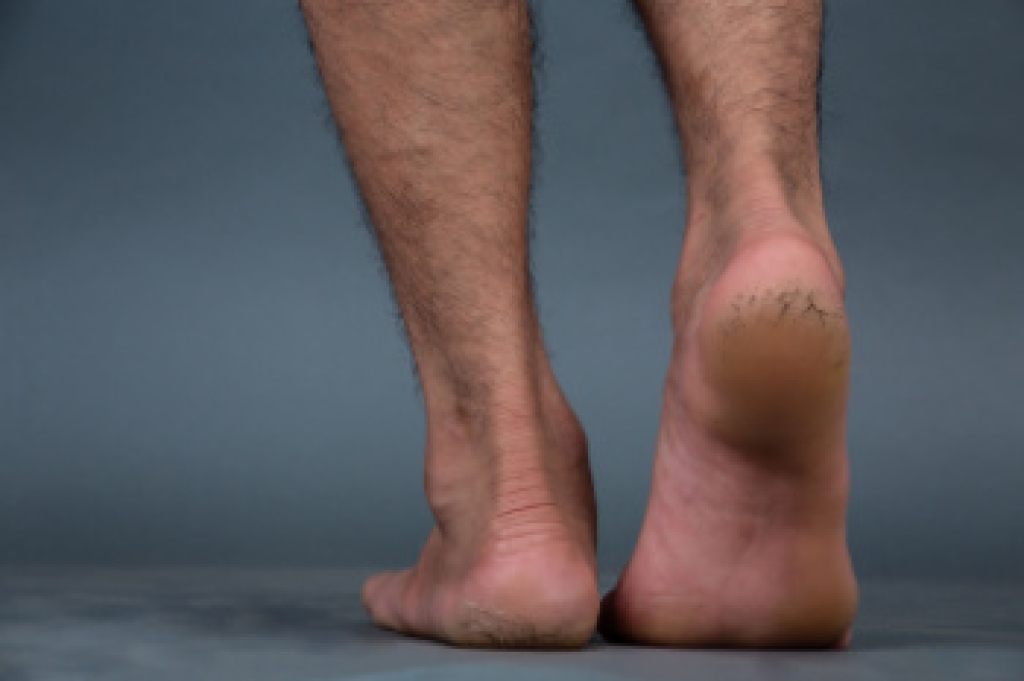
Cracked heels occur when the skin on the heels becomes dry, thickened, and fissured, often leading to discomfort and cosmetic concerns. This condition, medically known as heel fissures, can result from various factors, including dehydration, prolonged standing, wearing open-back shoes, or inadequate foot care. The skin on the heels lacks oil glands, making it prone to dryness and cracking, especially in dry climates or during colder months. To prevent cracked heels, it is essential to maintain proper foot hygiene by regularly moisturizing the heels with a hydrating foot cream or lotion. Exfoliating the heels gently to remove dead skin buildup and wearing supportive footwear that protects the heels can also help prevent the formation of cracks. Additionally, staying hydrated, maintaining a balanced diet rich in vitamins and minerals, and avoiding excessive standing or walking barefoot can contribute to overall foot health and prevent cracked heels from developing. Cracked heels can be painful. If you have developed this foot condition, it is suggested that you consult a podiatrist who can offer you effective treatment methods, which may include prescribed medication.
If the skin on your feet starts to crack, you may want to see a podiatrist to find treatment. If you have any concerns, contact Peter Siroka, DPM from Connecticut. Our doctor can provide the care you need to keep you pain-free and on your feet.
Cracked Heels
It is important to moisturize your cracked heels in order to prevent pain, bleeding, and infection. The reason cracked heels form is because the skin on the foot is too dry to support the immense pressure placed on them. When the foot expands, the dry skin on the foot begins to split.
Ways to Help Heal Them
- Invest in a good foot cream
- Try Using Petroleum Jelly
- Ease up on Soaps
- Drink Plenty of Water
Ways to Prevent Cracked Heels
- Moisturize After Showering
- Skip a Shower
- Keep Shower Water Lukewarm
- Don’t Scrub Your Feet
If you are unsure how to proceed in treating cracked heels, seek guidance from a podiatrist. Your doctor will help you with any questions or information you may need.
If you have any questions, please feel free to contact our office located in Stamford, CT . We offer the newest diagnostic and treatment technologies for all your foot care needs.
